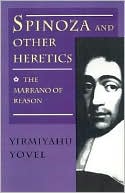Category Books
- Fiction Books & Literature
- Graphic Novels
- Horror
- Mystery & Crime
- Poetry
- Romance Books
- Science Fiction & Fantasy
- Thrillers
- Westerns
- Ages 0-2
- Ages 3-5
- Ages 6-8
- Ages 9-12
- Teens
- Children's Books
- African Americans
- Antiques & Collectibles
- Art, Architecture & Photography
- Bibles & Bible Studies
- Biography
- Business Books
- Christianity
- Computer Books & Technology Books
- Cookbooks, Food & Wine
- Crafts & Hobbies Books
- Education & Teaching
- Engineering
- Entertainment
- Foreign Languages
- Game Books
- Gay & Lesbian
- Health Books, Diet & Fitness Books
- History
- Home & Garden
- Humor Books
- Judaism & Judaica
- Law
- Medical Books
- New Age & Spirituality
- Nonfiction
- Parenting & Family
- Pets
- Philosophy
- Political Books & Current Events Books
- Psychology & Psychotherapy
- Reference
- Religion Books
- Science & Nature
- Self Improvement
- Sex & Relationships
- Social Sciences
- Sports & Adventure
- Study Guides & Test Prep
- Travel
- True Crime
- Weddings
- Women's Studies
Spinoza and Other Heretics, Volume 1: The Marrano of Reason » (REPRINT)

Authors: Yirmiyahu Yovel, Yirmiyahu Yovel
ISBN-13: 9780691020785, ISBN-10: 0691020787
Format: Paperback
Publisher: Princeton University Press
Date Published: January 1992
Edition: REPRINT
Author Biography: Yirmiyahu Yovel
Book Synopsis
This ambitious study presents Baruch Spinoza (1632-1677) as the most outstanding and influential thinker of modernity--and examines the question of whether he was the "first secular Jew." A number-one bestseller in Israel, Spinoza and Other Heretics is made up of two volumes--The Marrano of Reason and The Adventures of Immanence. Yirmiyahu Yovel shows how Spinoza grounded a philosophical revolution in a radically new principle--the philosophy of immanence, or the idea that this world is all there is--and how he thereby anticipated secularization, the Enlightenment, the disintegration of ghetto life, and the rise of natural science and the liberal-democratic state.
The Marrano of Reason
The Marrano of Reason finds the origins of the idea of immanence in the culture of Spinoza's Marrano ancestors, Jews in Spain and Portugal who had been forcibly converted to Christianity. Yovel uses their fascinating story to show how the crypto-Jewish life they maintained in the face of the Inquisition mixed Judaism and Christianity in ways that undermined both religions and led to rational skepticism and secularism. He identifies Marrano patterns that recur in Spinoza in a secularized context: a "this-worldly" disposition, a split religious identity, an opposition between inner and outer life, a quest for salvation outside official doctrines, and a gift for dual language and equivocation. This same background explains the drama of the young Spinoza's excommunication from the Jewish community in his native Amsterdam. Convention portrays the Amsterdam Jews as narrow-minded and fanatical, but in Yovel's vivid account they emerge as highly civilized former Marranos with cosmopolitan leanings, struggling to renew their Jewish identity and to build a "new Jerusalem" in the Netherlands.
Library Journal
Called by Yovel the first important philosopher of immanence, Spinoza considered God and nature to be identical, a new doctrine that broke radically with Judaism and Christianity. Yovel finds the origin of Spinoza's heterodoxy in the Marranos, from whom he was descended. The Marranos were Spanish Jews who converted to Christianity under compulsion but secretly continued to practice Judaism. The conflicting pressures of following two religions sometimes led to a total collapse of faith, and Yovel describes in a masterly way a tradition of Marrano skepticism. He also illuminates Spinoza's influence on later thinkers. He does not completely clarify the meaning of ``immanence'' and also assumes without much argument that the immanentist position is correct. Nevertheless, this is clearly a work of major significance.-- David Gordon, Bowling Green State Univ. , Ohio
Table of Contents
| Preface | ix | |
| Note on Sources | xiii | |
| Chapter 1. | Prologue: Heretic and Banned | 3 |
| Chapter 2. | Spinoza, the Marrano of Reason | 15 |
| Chapter 3. | The Split Mind: New Jews in Amsterdam | 40 |
| Chapter 4. | Marranos in Mask and a World without Transcendence: Rojas and La Celestina | 85 |
| Chapter 5. | Spinoza, the Multitude, and Dual Language | 128 |
| Chapter 6. | Knowledge as Alternative Salvation | 153 |
| Chapter 7. | Epilogue: Spinoza and His People: The First Secular Jew? | 172 |
| Afterword | 205 | |
| Notes | 209 | |
| Index | 241 |
Subjects
 Judaism & Judaica
Judaism & Judaica  Jewish Philosophy
Jewish PhilosophyChristianity
 All Religion
All Religion  General & Miscellaneous Religion
General & Miscellaneous ReligionNonfiction
 Philosophy
Philosophy  European & American Philosophy
European & American PhilosophyNonfiction
 Philosophy
Philosophy  General & Miscellaneous Philosophy
General & Miscellaneous PhilosophyNonfiction
 Philosophy
Philosophy  Renaissance & Modern Philosophy
Renaissance & Modern PhilosophyNonfiction
 Social Sciences
Social Sciences  Jewish Studies
Jewish StudiesPhilosophy
 European & American Philosophy
European & American Philosophy  European Philosophy - General & Miscellaneous
European Philosophy - General & MiscellaneousPhilosophy
 General & Miscellaneous Philosophy
General & Miscellaneous Philosophy  Jewish Philosophy
Jewish PhilosophyPhilosophy
 Renaissance & Modern Philosophy
Renaissance & Modern Philosophy  Modern Philosophy - 17th & 18th Century
Modern Philosophy - 17th & 18th CenturyReligion Books
 Judaism & Judaica
Judaism & Judaica  Jewish Philosophy
Jewish PhilosophyReligion Books
 All Religion
All Religion  General & Miscellaneous Religion
General & Miscellaneous ReligionScience & Nature
 Social Sciences
Social Sciences  Jewish Studies
Jewish StudiesSocial Sciences
 Jewish Studies
Jewish Studies  Jewish Philosophy
Jewish PhilosophyChristianity
 Christianity
Christianity  All Religion
All ReligionNonfiction
 Religion
Religion  All Religion
All ReligionReligion Books
 Christianity
Christianity  All Religion
All Religion
